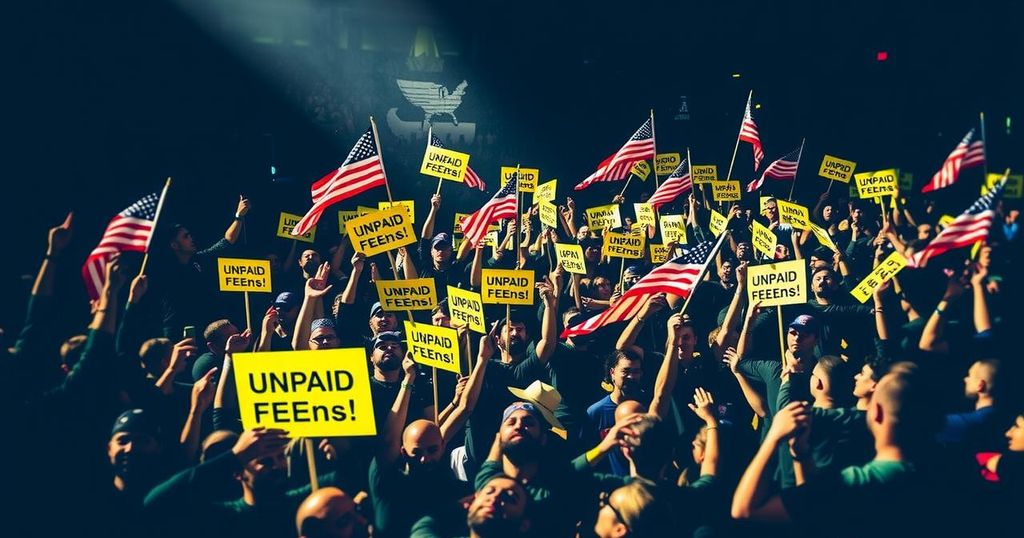Donald Trump faces mounting unpaid bills for costs linked to his rally events across various U.S. cities, including expenses for security and police overtime. Despite the approaching 2024 presidential election against Kamala Harris, his campaign struggles with financial stability, compounded by declining donor contributions and outstanding legal fees. This history of unpaid dues reflects a broader pattern of financial negligence that could impact his electoral prospects.
Donald Trump, the Republican presidential candidate, is currently facing a significant backlog of unpaid bills related to costs incurred during his political rallies, which include expenses for security and police overtime. In light of the upcoming 2024 election, where he is positioned to contest against Democratic candidate Kamala Harris—who recently led Trump in several pivotal polls—these financial issues have come to the forefront of his campaign challenges. As of now, Trump owes various cities across the United States tens of thousands of dollars for agreements associated with rally events. For instance, Prescott Valley in Arizona has indicated that Trump’s campaign owes them $25,737.32 from a rally held in 2022. Similarly, Mesa, Arizona, reported that the Trump campaign has failed to pay an outstanding invoice for $64,477.56 related to a 2018 rally, asserting their expectation of reimbursement for taxpayer expenditures. Other cities bearing the financial burden include El Paso, Texas, which claims that Trump owes them $569,204.63 for a rally in 2019, and St. Cloud, Minnesota, which reported an unpaid sum of $208,935.17 for expenses from a rally earlier this year. Additionally, Lebanon, Ohio, and Spokane, Washington, have outstanding bills that stem from rallies held during Trump’s tenure, with amounts of $16,191 and $65,124.69, respectively.
The financial disputes surrounding Donald Trump’s rallies underscore a broader trend of unpaid dues that have characterized his political engagements and business dealings. Historically, Trump has a noted reputation for neglecting financial obligations, evidenced by past investigations revealing thousands of lawsuits against him regarding unpaid bills. This ongoing pattern has now manifested within his political campaign as he seeks reelection amidst declining donor contributions and increasing debt. As Trump’s financial challenges mount, particularly relating to accumulated legal fees from various cases, the impact on his electoral viability becomes increasingly tenuous.
In conclusion, Donald Trump’s campaign continues to grapple with a growing list of unpaid dues associated with his political rallies, reflecting a longstanding pattern of financial irresponsibility. As his campaign prepares for the upcoming election against Vice President Kamala Harris, these outstanding debts raise questions about the implications for his political viability and the accountability of campaign financing in general. The growing trend of local governments requiring upfront payments for campaign-related services indicates a shift in response to Trump’s financial history, pointing to a potentially difficult path ahead for his campaign funding.
Original Source: www.aljazeera.com







